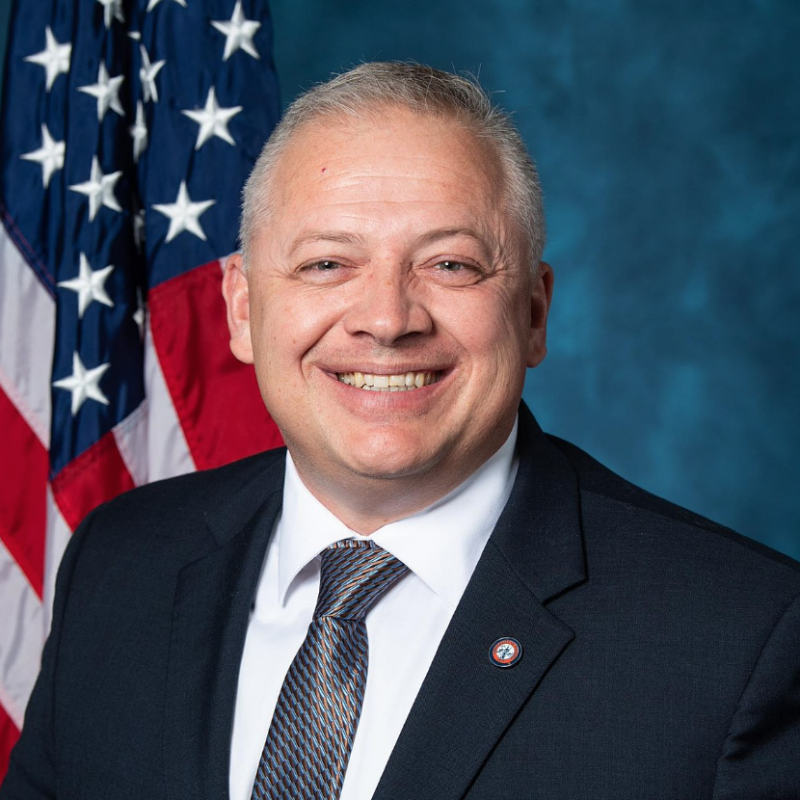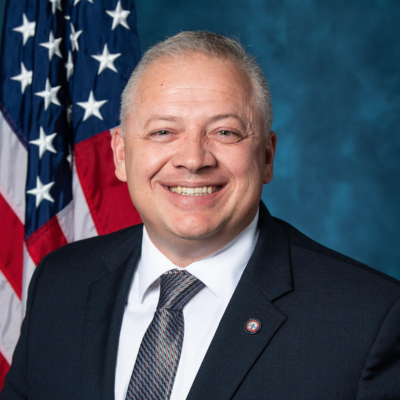
On November 9, two days after voters cast their ballots, Virginians finally had a senator-elect when Republican incumbent George Allen conceded the race to Democrat Jim Webb, avoiding what could have been a lengthy recount in the last undecided Senate race in the country. Webb led the former governor by 7,300 votes.
“The people of Virginia have spoken, and I respect their decision,” Allen said from the steps of the Carlyle House in Alexandria, adding that he had called Webb that day to congratulate him.
In such a close race, Allen would have been within his bounds to challenge the results and call for a recount, which Virginia law allows when an election margin is less than 1 percent of the popular vote. But a recount would have been a drawn-out process for the entire nation, with control of the Senate resting in the balance.
Likely, Allen looked to the example set in the 2005 Virginia attorney general’s election. In that race, it took until December 20 to begin a recount to decide between Democrat Creigh Deeds and now-Attorney General Bob McDonnell. (It was the narrowest state election in modern Virginia history: McDonnell won by 323 votes out of 1.9 million cast.)
UVA Center for Politics sage Larry Sabato stated publicly that the race in Virginia was “over.”
Allen gathered accolades in the form of press releases from McDonnell, Lieutenant Governor Bill Bolling and Governor Tim Kaine immediately following his speech. McDonnell’s statement called Allen the “most effective Governor of the modern Virginia era,” noting his accomplishments in welfare reform, abolishing parole and creating tech jobs. All will be useful bullet points when Allen makes an almost-certain re-entry into public life.
Wise as it may have been, Allen’s concession was a surprisingly graceful move considering his camp’s notoriously sloppy campaign tactics. His campaign dredged Webb’s record as President Reagan’s Secretary of the Navy to portray Webb as a misogynist opposed to women in the military. His team also scanned Webb’s novels for fictional sex scenes the Allen camp called “graphic and deviant,” and used debate footage they had pledged not to run in ads.
 |
|
Virginia Senator-elect James Webb |
Allen’s campaign was also deeply marred by verbal blunders and questions about his character. The biggest of these blunders was “Macacagate,” when Allen called a student of Indian descent who was filming a rally for Webb’s camp “macaca,” a North African racial slur. Allen also shirked his Jewish heritage when originally confronted about it and reports surfaced that as an undergrad and law student at UVA he hung Confederate flags in his dorm room, regularly used the “N”-word, and left a deer head in a black family’s mailbox (Allen denied the two latter allegations). What may have been the icing on the cake came a week before the election when two Allen volunteers scuffled with a liberal blogger who was antagonizing Allen during an event at the Omni Charlottesville Hotel.
The concession leaves constituents wondering how Allen will now spend his time. Fellow GOP Senator John Warner pledged that Allen would remain an adviser on matters relevant to Virginia. In his concession speech, Allen indicated a hiatus from public life, perhaps indicating a return to the Richmond law firm McGuireWoods.
Webb’s victory finalized a Democratic majority in the Senate, with 49 Republicans, 49 Democrats and two independents: Joe Lieberman of Connecticut and socialist Bernie Sanders of Vermont, who will likely vote with Democrats. Democrats took the House as well, making the 110th the first Democratic Congress since 1994, and the first opposition-controlled Congress of the Bush presidency.
For complete Virginia results see:
http://sbe.virginiainteractive.org/index.htm





